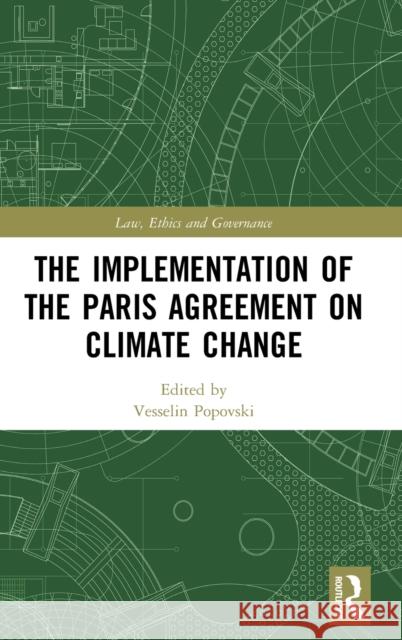The Implementation of the Paris Agreement on Climate Change » książka
The Implementation of the Paris Agreement on Climate Change
ISBN-13: 9780415791236 / Angielski / Twarda / 2018 / 316 str.
The Implementation of the Paris Agreement on Climate Change
ISBN-13: 9780415791236 / Angielski / Twarda / 2018 / 316 str.
(netto: 723,00 VAT: 5%)
Najniższa cena z 30 dni: 654,86
ok. 22 dni roboczych.
Darmowa dostawa!
In December 2015, 196 parties to the United Nations Framework Convention on Climate Change (UNFCCC) adopted the Paris Agreement, seen as a decisive landmark for global action to stop human-induced global warming. The Paris Agreement creates legally binding obligations and in order to halt global warming it is imperative for these national commitments to be implemented. This book, the third in a series of three examining the global climate integrity system, provides an implementation 'rulebook' for the post-Paris climate regime. This is an essential, as the temperature goal of the Paris agreement and the targets encapsulated require a fully comprehensive burden-sharing framework - both in legal obligations and in practical facilitation. The volume examines a broad range of issues including the lessons that can be learnt from the implementation of previous climate policies at national and sub-national levels and whether the implementation mechanisms in the Paris Agreement are likely to be sufficient. It discusses the obligation and facilitation frameworks including issues such as financing and technology sharing. Challenges facing particular regions and groups are also explored. Written by leading experts and practitioners, the book diagnoses gaps and lays the ground for future exploration of policy options. This collection will be of interest to policy makers, academics, practitioners, students and researchers focusing on climate change governance.











